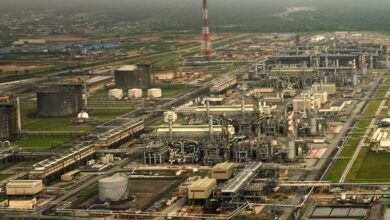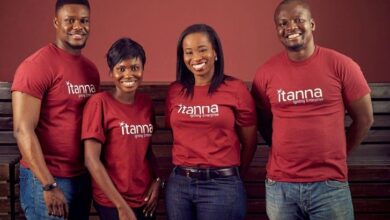
Despite the misgivings of many Nigerians who think that the Federal Government cannot be trusted with the CACOVID Funds that corporate organisations and some individuals are putting together (to help alleviate the sufferings occasioned by this unanticipated emergency), concerned corporates and individuals have stayed consistent with throwing in their contributions in the hope that government would surprise everyone and do a job that leaves Nigeria the reference point for all.
So far, unfortunately, that has not been the case. Grumblings and murmurings and incidences of near rioting have been the norm in many places where government intervention is channeled by way of basic foodstuff. What is supplied is so inadequate, the people consider it insulting and a measure of the lack of value that government places on them. And meretricious comments from government officials notwithstanding, the people are walking by sight, not by propaganda.
The Conditional Cash Transfer scheme, for instance, has a very limited sharing radius, relative to the wide span of pan Nigeria misery it is supposed to help ameliorate. Plus, the parameters that inform its sharing policy are, to put it charitably, nebulous. Funds from the commonwealth are not being channeled equitably thereby instigating anger rather than commendation.
Another spanner in the mix is government’s increasingly limited revenue intake. As of the time of this writing, oil, our revenue mainstay was selling at $10.50 per barrel. Most likely, we will increasingly start hearing from our officials how even basic salaries are difficult to pay, not to talk of relief measures for starving folks under lockdown.
Many farmers are compelled to observe the lockdown. Farm owners, who would normally travel from the cities on weekends to supervise their farms in the villages and bushes, can no longer do so, despite this being the onset of the rainy season. The rains are falling but it’s the grasses that are growing. There isn’t much cultivation going on. Ditto for livestock. They are now at the mercy of farmhands, most of whom are happily derelict in their duties except where strict supervision is applied.
The world economy is taking a horrid beating, but would you know where it’s worse? It would be over here, of course. And so, again, like was said last week on these pages, we must be original with our solutions. It would be a sad day when our country, already run over in some parts by Boko Haram, bandits, kidnappers, and militant herdsmen, is finally taken over by criminals who have not been shy in showing their hands. The lockdown hasn’t been on for a month, the effect on the economy (of dirt cheap fuel price) is not yet telling – we had buffers); and yet the criminals, driven by desperation for wealth or mere survival, are already wreaking havoc.
The question we must ask is, all things considered, can Nigeria afford this ill-managed lockdown? And by affordability I do not mean merely in the short term. Is it to our long term advantage, seeing how it’s been most difficult to enforce the lockdown due to gaps in formulation and application, wouldn’t it be wiser if we stayed at work, if we stayed productive (at least let’s produce and sell food!); wouldn’t it make more sense if government adopted the Cross River State model of policing social distancing and preventive wear (face masks) while citizens are out and about their jobs?
The lockdown can even be time specific:
- Let’s work 8- 2pm and allow for till 5pm for everybody to be home.
- Lockdown begins at 6pm every day.
- No bars open. No gardens open.
- Hotels under strict instructions to enforce social distancing.
- Markets open every day, but with social distancing in place.
- Senior citizens (those 65 and above) to stay at home
- Schools to stay online for now until the risk tapers down.
It is important that we think for ourselves, and that we envision our collective future beyond Covid-19. Every country is looking out for itself and we would be remiss in our responsibilities as representatives of this generation (which likes to think of itself as enlightened) to imagine even if for one minute that the US, China, Russia, the UK, France, Germany, WHO or any of the UN organisations is losing sleep over our predicament. They are all engrossed in theirs and have deliverables that, shorn of diplomatic flatulence, do not include us.
So who speaks for us at this time? We would rather our business leaders spoke up and maybe help give government a sense of where they should be going this period. Nigeria needs to stay productive. Hopefully, oil prices would rebound, but for now, we can’t count on oil. Our creative sector needs to keep working. The technology sector needs to stay cranking. Our industries can’t stop humming. We can and should be the model rather than copying models that, being exogenous, are likely most inapplicable.
Let our business leaders speak up, not from their own personal profit motive, but from the collective. Will they be misunderstood? Yes, they will. Just in the same way as this writing is sure to be misunderstood and issues taken with it. That is okay. But the responsible thing is to speak up, not merely for one’s own beliefs, but from an informed position based on a topical as well as visionary analysis of the situation.
The stats don’t lie: we are on a downward slide with our halfhearted lockdown which equals total non-compliance at the end of the day.
Let our chambers of commerce speak up. Show us the projected figures vis a vis figures from elsewhere. Help Nigeria take an informed life-or-death decision
If the economy stays on lockdown, the CBN N50Bn intervention Fund, for instance, will end up going for food and everyday survival rather than the business stimulus for which it was supposedly designed.
Austria, as at the time of this writing, is exploring ways of reopening some businesses. Israel, South Korea, and Germany also, as well as India are all itching to get back into the fray. Donald Trump, of course, is bullish and mulish about that particular course of action despite opposition from many sides.
And Nigeria? It should not be that after the dust settles on Covid-19, that beloved country Nigeria would have only managed to reinforce its dependency status of going cap in hand to other economies which are only too happy to negotiate choice deals that leave us open to their economic takeover.
Contributors, so far, to the CA-COVID Relief Fund
- Central Bank of Nigeria – N2Bn
- Aliko Dangote – N2Bn
- Flood Relief Fund – N1.5 Bn
- Abdulsamad Rabiu – N1Bn
- Segun Agbaje (GTBank) – N1Bn
- Tony Elumelu (UBA) – N1Bn
- Oba Otudeko (First Bank) – N1Bn
- Jim Ovia – (Zenith Bank) – N1Bn
- Herbert Wigwe (Access Bank) – 1Bn
- Femi Otedola – 1Bn
- Raj Gupta (African Steel Mills) – 1Bn
- Modupe & Folorunsho Alakija – 1Bn
- Mike Adenuga – N1Bn
- Nigeria Deposit Insurance Corporation (NDIC) – N1Bn
- John Coumantatous (Flour Mills of Nigeria) – N1Bn
- MTN Nigeria – N1Bn
- Deji Adeleke (Pacific Holdings) – N500m
- Rahul Savara – (Wacot Rice) – N500m
- Tolaram Enterprise Africa Ltd – N500m
- Bank of Industry – N500m
- Friesland Campina WAMCO – N500m
- Union Bank Plc – N250m
- Sterling Bank Plc – N250m
- Standard Chartered Bank – N250m
- Stanbic IBTC – N250m
- Citibank Nigeria – N250m
- FCMB – N250m
- Fidelity Bank – N250m
- Ecobank – N250m
- Africa Finance Corporation – N250m
- Multichoice Nigeria – N200m
- APM Terminals Apapa – N150,000
- FSDH Merchant Bank – N100,000
- FBN Merchant Bank – N100,000
- Rand Merchant Bank – N100,000
- Coronation Merchant Bank – N100,000
- Sun Trust Bank – N100,000
- Providus Bank – N100,000
- WEMA Bank – N100,000
- Unity Bank – N100,000
- Heritage Bank – N100,000
- NOVA Merchant Bank – N100,000
- Polaris Bank – N100,000
- Keystone Bank – N100,000
- KC Gaming Networks – N100,000
- Ports and Terminal Multiservices – N100,000
- Ports & Cargo Handling Services – N75,000
- Five Star Logistics Ltd – N75,000
- ENL Consortium – N 70,000
- Josepdam Ports Services – N60,000
- Systemspecs – N50,000
- Globus Bank – N50,000
- Titan Trust Bank – N50,000
- Takagro Chemicals – N50m
- Atiku Abubakar – N50m
- WA Container Terminal – N50m
- Ports & Terminal – N50m
- Pastor WF Kumuyi (Deeper Life) – N50m
- KAM Wire Ltd – N30m
- De Damak Nigeria Ltd Automobile – N25m
- Ahmadu Mahmoud – N20m
- CWAY – N20m
- Adron Homes Properties Ltd – N20m
- Ekeoma Eme Ekeoma – N10m
- LADOL Logistics – N10m
- Greenwich Trust Ltd – N10m
- SIL Chemicals Ltd – N10m
- ECN Terminal – N10m
- Apapa Bulk Terminal – N10m
- Cowry Asset Management – N9,999,838.75
- Jennifer Ramatu Etuh Foundation – N5m
- Mecure Industries – N5m
- Comet Shipping Agencies Nigeria – N5m
- Jubali Brothers Ltd – N5m
- ADG International Resources – N2.5m
- Ocean Lords Ltd – N2m
- Norrenberger Investment Capital – N2m
- Proshare – N1m
- Few Chore Finance Company – N1m
- Tarabaroz Fisheries Ltd – N504,451.25
- Abayomi Folorunsho – N500,000
- Kanakala Lakshmipathi Naidu – N100,698.75
- Usman Ahmed – N50,000
- Manji Yabwahat Longmut – N10,000
- Jayakumar Selvam – N10,000
- Anyaehie Stanislaus Ikechukwu – 10,000
- Frederick Kigha – N10,000
- Mr & Mrs Ojo Edward Oluwajoba – N3,000
- Hamza Muhammad Kamba – N2,000
- Kamalu Aminu – N1,000
- Oluwadamilola Fagbiye – N1,000
- Mohammed Ghali Muhammed
- Adamu Yusuf & Uchendu Collins (N100 each)
- Bashir Auwal (N60); Bilal Abdulsalam (N50); Umar Nafiu Usman (N50); Sani Alto Isah (N20); Bashir Sulaiman (N20); Abubakar Shehu (N10); Sanni Zakariyya (N10); Ibrahim Moh’d Bello (N8); Idris Mohammad (N5); Alhaji Mallam Musa (N5); Abubakar Ismail Abubakar (N2); Bello Shuaibu (N1); GH (N1)
TOTAL = 25,893,699,791.00
TAKE-AWAYS from the List:
- The billionaires on the list donated in their corporate rather than individual capacities. Most of these businesses are PLCs so would have required some emergency board resolution. The donations are from the businesses.
- Some have donated in what seems like their individual rather than corporate capacity.
- Would we be asking for too much if we say we still expect more from these captains of industry and the businesses they represent? Not necessarily to the Fund, but in other ways that help lighten the heavy Covid-19 burden.
- Some MIA industry captains: Aigboje Aig-Imokhuede, Fola Adeola, Otunba Subomi Balogun, Peter Obi, Atedo Peterside, etc.
- Former office holders MIA: Ghali Na’abba, David Mark, Olusola Saraki, Anyim Pius Anyim, Sule Lamido, Attahiru Bafarawa, Dino Melaye, etc.
- Curiously, also, there are no Chinese companies represented here. But nice to see a number of Indian as well as Greek and Lebanese businesses represented on the list.
- Some of the organisations here seem to have punched well below their weight….
- Pastor Paul Enenche’s N2Bn worth donation not here mentioned. Maybe as it was in kind rather than cash.
- Kudos to the CBN for making the list available. That’s the first step in transparency. The next step is for donors and citizens to police the spending…

Onuwa Lucky Joseph is the CEO, Earl Glow Communications







